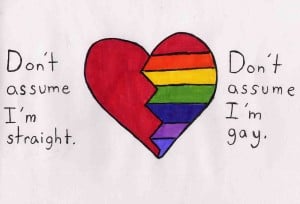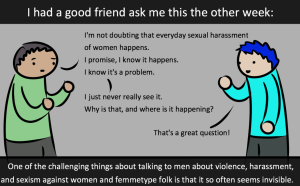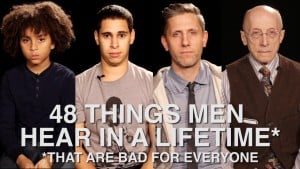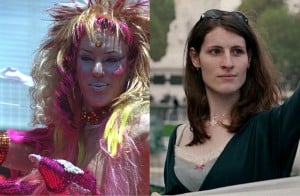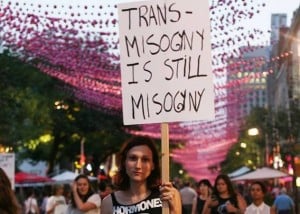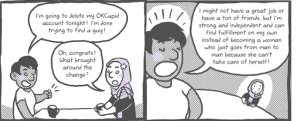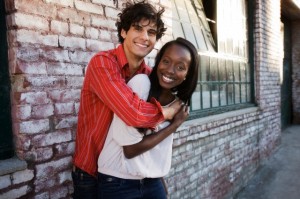
Source: Tips of Divorce
Author’s Note: Though racial microaggressions are felt by every marginalized group within the dating realm, I am building upon my own personal experiences with heterosexual, cisgender white men to offer suggestions on how to ease racial tensions that may arise in a white man/black woman pairing.
Once, I was at a bar with friends when two white men approached me. One was a guy who was interested in talking to me, and the other was acting as his wingman.
The wingman walked up to me as his friend stood beside him and screamed over the music, “You’re perfect! My friend likes black girls, but he doesn’t like them too dark!”
Against my better judgment, I assumed that the wingman just wasn’t very good at his job and started talking to his friend anyway. We ended up hitting it off, but it wasn’t until our first date that I realized I had underestimated the wingman’s abilities.
The guy did, in fact, have some kind of black girl fetish.
He kept touching my hair without my consent, was legitimately disappointed that I could not twerk, and called me “sassy” whenever I voiced an opinion that was different from his.
Unfortunately, that wasn’t the first or last awkward date I’ve had with a white man.
I wish I could say that I’m surprised and appalled by the ignorance that white men tend to show when they approach me, but I’ve come to expect it. While white men are not the only group to hold racial biases and stereotypes against black women, they tend to be the least informed on the racialized and gendered issues that black women endure.
White men have the privilege of not having to actively think about their intersections of race and gender, which is starkly different from black women’s realities. White men navigate society with relative ease while black women are teetering on the precarious margins of race and gender that they do not have the privilege to ignore.
This is not a game to us, nor is it something we can ignore.
Our race and gender affects the way we carry ourselves, and this uncomfortable mindfulness is something that white men simply cannot relate to. While it may be hard for two people from widely different intersections of race and gender to understand each other, it’s not impossible once the more privileged party (in this case, the white guy) is able to recognize their shortcomings and how the intersections of race and gender affect every aspect of a black woman’s life.
A white man must be willing to work toward a better understanding of how race and gender intersect differently for everyone, and he must also be prepared to speak out against the injustices that their partners will endure.
We’ve recently offered suggestions on how people of color can approach their white partner on the issue of race. And while of course the topic of race should be an ongoing conversation with your significant other, things would go a lot smoother if men — and in this case, white men — were able to identify and prevent racial tension from the very beginning.
To be blunt: White guys, you often approach black women in a harmful way.
Most white men are unaware of the microaggressions towards their black partner that make their chances for a second date slim to none.
Microaggressions are comments or actions that unintentionally alienate or demean a marginalized person or group.
These include, but are not limited to, saying things such as “You’re [insert positive adjective] for a black girl!” or “You’re not like other black people!”
These may seem harmless to some, but they’re actually symptoms of deeper problems rooted in systematic oppressions that black women face daily.
So, in order to avoid some head and heartaches down the road for both parties, I’d like to offer white men some suggestions on how to best approach us.
This won’t apply to every black woman, but it wouldn’t hurt to infuse some intersectional feminism into your game.
Intersectionality would help because it’s an understanding that a person’s experiences are shaped by their gender, race, physical ability, and socioeconomic class, to name a few factors.
In other words, you should be looking at the whole person, and not a one-dimensional archetype of a black woman.
But before you can even get there, you need to do some self-reflection to work out why, exactly, you want to date black women (or a particular black woman). Here are some questions to think about:
- Do you proclaim to have “Jungle Fever” or “a thing for black women?”
- Do you believe that black women are, by virtue of their race, exotic and different?
- Do you think of dating a black woman as a new or exotic experience?
- Do you have a fascination with how biracial children look? Are you seeking out black women for the sole purpose of having mixed kids?
- Are you pursuing a black woman as an act of rebellion against your friends and/or family?
- Do you expect all or most black women to behave the same?
If you answer yes to any of these, then you should take a step back to reevaluate.
These are harmful stereotypes that will not only make your black partner uncomfortable, they will further marginalize them.
You should want to date a person because you like who they are and have compatible views and interests, not because their race is the next thing to do on your bucket list or because you were enthralled by their “exotic ways” (honestly, are you doing an anthropological study on black culture? Don’t treat me like an artifact).
If you answered no to these questions and you think those assumptions on black womanhood are downright absurd (hint: they are), then perhaps you are well on your way to showing a black woman that you want to date a complete person and not a stereotype!
So, as you’re getting to know this woman, be sure to keep the following in mind:
1. Be Open-Minded About Racial and Cultural Differences
Race is going to come up in any interracial coupling, but please do not say “You’re pretty/intelligent/well-spoken/whatever for a black woman!” or “You’re not like other black women!”
That may seem like a compliment, but what we’re actually hearing is “I think all black people are [negative adjective], but you are the exception.”
These are perfect examples of microaggressions.
When you compliment a black woman in this way, you are implying that we are exceptions to the rule — the rule being that that black women are not attractive, intelligent, or posses any other positive attributes.
And when these stereotypes are internalized and then manifested in society, it could have severe consequences.
More often than not we are looked over for jobs, we do not receive adequate education or medical care, and we are imprisoned at much higher rates than our white counterparts all because blackness is rarely associated with positivity.
So in order to combat the harmful stereotypying of our people, try to compliment us without the caveat!
“You’re intelligent.” “You’re hilarious!” Full stop.
2. Accept Black Women as Individuals
Often, someone from a marginalized group is expected to be the authority on that group’s culture, but that’s an unreasonable expectation.
It’s assumed that that everyone belonging to that group thinks and behaves the same way, but that is never – ever – the case.
When getting to know a black woman, don’t ask them to be the authority on black culture. Don’t ask us “Why do black people like or do _____?” You can’t expect one person to know all things black culture.
Instead, remember that black women, like all people, have varying interests, backgrounds, and obstacles that they face daily.
Try to think of a black woman as an individual, and not as the chosen speaker for a whole diverse group.
3. Appreciate Black Women’s Sexuality — But Don’t Fetishize Them
Fetishization of black women occurs in many different forms, but the some of the most common include quantifying black women and expecting them to adhere to stereotypes.
Black lovers should not be collected and bragged about like trophies.
This further marginalizes us by making it seem like we are something exotic, elusive, and mysterious.
Don’t expect black women to twerk, to be angry, or to be promiscuous.
Not only will you be sorely disappointed if the black woman you pursue doesn’t have any of these attributes, but you’re also perpetuating harmful stereotypes about black women.
Instead, treat each and every black woman you crush on like an individual.
Like I’ve said, we’re all different.
Individuality and uniqueness is something that isn’t afforded to black women; instead, we’re expected to fit into one suffocating box of limited stereotypes.
But black women are fully fleshed, three dimensional human beings with varying thoughts, abilities, values, and passions. Please treat us as such.
4. Just Be Yourself
As cliché as this sounds, you don’t have to pretend to be anything other than yourself when approaching a black woman.
Because we’re faced with such hostility and scrutiny in the dating world, black women can be just as nervous about dating outside of their race as you are.
Just like you shouldn’t expect a black woman to behave a certain way, you shouldn’t have to pretend to be something you’re not to impress someone either.
Talk to black women like you would anyone else and get to know them for who they really are.
Appreciate us for our versatility and the little quirks that make each one of us so special. You’ll be pleasantly surprised when you realize that black women are so much more than what they are expected to be.
[do_widget id=”text-101″]
Jenika McCrayer is a Contributing Writer for Everyday Feminism. A Virginia native with a BA in Women and Gender Studies from The College of William and Mary, she is currently pursuing an MA in the same field. This AmeriCorps alumna is passionate about community service and strives for a better understanding of how to mobilize marginalized populations through service and activism. Jenika also enjoys good books, bad horror films, naps, and the beach. Follow her on Twitter @JenikaMc. Read her articles here.
Search our 3000+ articles!
Read our articles about:
Our online racial justice training
Used by hundreds of universities, non-profits, and businesses.
Click to learn more






